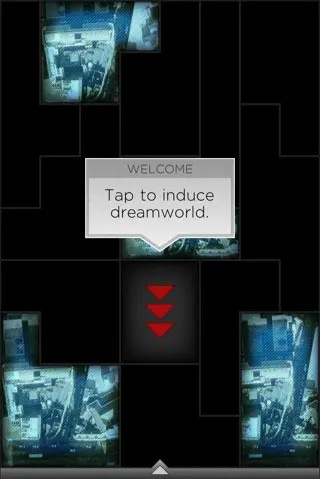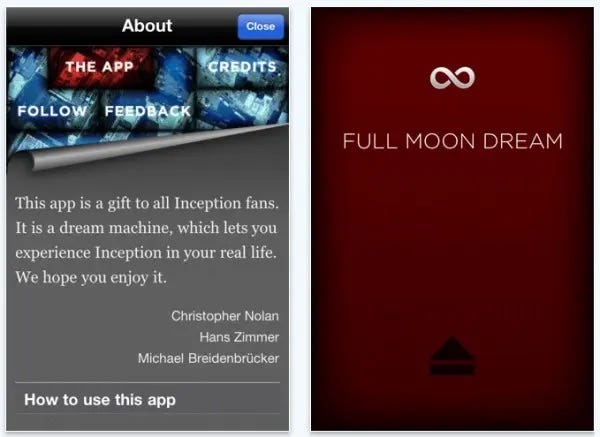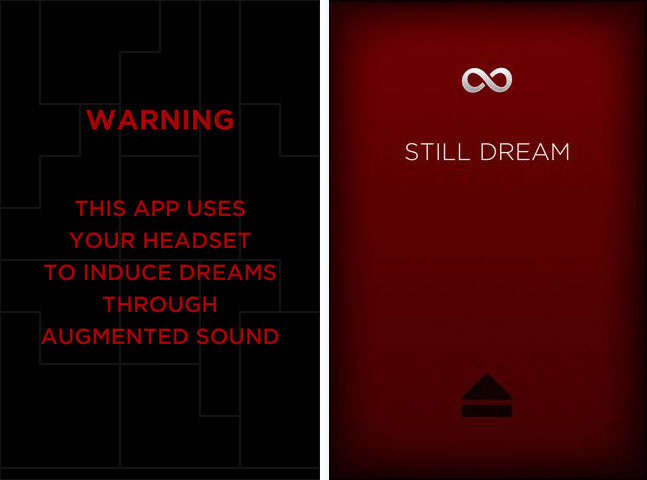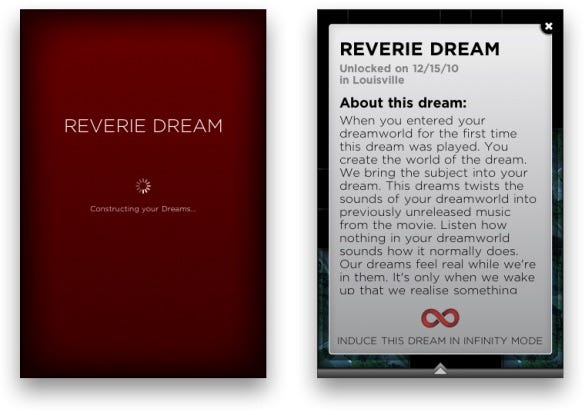How INCEPTION (2010) fundamentally changed my life
Ahead of its 15th anniversary, permit me to look back on Christopher Nolan's mind-bending epic, and count the ways it altered my life's trajectory.
“You mustn't be afraid to dream a little bigger, darling.”
One year ago today - February 17th, 2024 - marked the date of a long-belated rectifying of a regret this old man had been filled with for fourteen years: the regret that I never got to see Inception in cinemas when it was first released in 2010. But here, at long last, I finally got a second chance to see the film the way it was always meant to be seen - on the big screen, dwarfing my field of vision, alongside an appreciative audience, in a dark room, with surround sound speakers enveloping me in Hans Zimmer's iconic, booming score.
2010 was a dark chapter in my cinema-going history, in that I didn’t get to go to the cinema whatsoever that year. If I could’ve had my way, and if I’d had the choice of only seeing one out of all the great films that came out back then - (The Social Network; Scott Pilgrim vs The World; Black Swan; Kick-Ass; Shutter Island; True Grit; How To Train Your Dragon; etc) - Inception would’ve been my top choice.
Christopher Nolan was one of the most formatively influential filmmakers I grew up loving. From watching Memento when I was 10, and witnessing the unofficial competition of similarly-themed films that was pitted in 2006 between Nolan's The Prestige and Neil Burger's The Illusionist, to going to see The Dark Knight twice in cinemas in the summer of 2008 (first on opening day, then again on my 15th birthday), the building steam of hype I felt contemporaneously for the release of Inception was astoundingly acute. What with the blank cheque he got to make the film in the wake of The Dark Knight's billion dollar success, the tantalising tidbits of information about its casting and plot getting trickled out piecemeal in the months leading up to its release, and that iconic trailer - memorably scored by Zack Hemsey's 'Mind Heist'1 - which indelibly influenced the BWAAAAAMMM!!-centric sound and shape of movie trailers in ways we're still seeing to this very day, all these factors conspired to make my anticipation for Inception practically stratospheric.
Yet alas, the summer of 2010 came and went, and thanks to my mother having a stranglehold on my freedom by refusing to allow me the money to go out and see it, I missed the film's theatrical run, to my bitter chagrin.
In the interim, I had to make do with just repeatedly listening to the soundtrack album - one of the all-time greatest scores Zimmer and his army of unsung collaborators have ever collectively composed - which made my imagination run wild to think what could possibly happen in the film to match the emotion of this extraordinary music.2
As well as that, there was the free Inception iPhone app from back in the day, which was a nifty little augmented sound app that took the external noise of your surroundings, and remixed them in real time with full tracks, individual stems, and app-exclusive versions of selections from Zimmer's score, into this constantly evolving, highly trippy soundscape you'd listen to with earphones whilst awake, or even better, while sleeping/dreaming.
Regrettably, the app has been dead, gone, and rendered obsolete for long enough, that plenty of you reading this will have never gotten the opportunity to download and use the app for yourselves during its minuscule time on this planet. But let me tell you, that app was a marvel. The way it responded to the sound levels of your environment, your level of movement, and the locations you were in at any given time, was remarkable. If you were in a moving vehicle, it'd play a looping version of 'Dream Is Collapsing', Johnny Marr's Bond-esque guitar riffs intermingling with those ear-blasting horns. If you were running, it'd play the pulse-poundingly propulsive synths, and impossibly fast drums from 'Mombasa'.
Each of these modes were categorised as different “dreams”, so there was a Shared Dream, a Sunshine Dream, an Airport Dream, and bizarrely, an Africa Dream that could only be unlocked by literally travelling to Africa. Plus, if you alternated between different unlocked dream modes too fast, you'd activate Limbo. If you were lucky enough to unlock the Reward Dream, you were treated to a slow-mo ambient remix of 'Time'.




You get the idea. It was pretty cool, and I miss it terribly. Same for the music files that were once ripped from it, and posted online for posterity, but which have since been lost to time...
...or have they?
Because as it happens, I finally tracked down an archive of the application's data file (which can only be transformed back into the app proper by jailbreaking an old iPhone, and that's too much of a hassle, really), and I managed to extract the raw music and sound effects files! So while it may not be a full recapturing of the app's wonders, it's still something to remember it by, so if you'd like to snag a download of the Inception app's music... well, you didn't hear it from me (winkwinkwinkwinkwink).
Anyway, fast forward to Christmas of 2010, and Inception turned out to be the first Blu-ray I ever got, in the form of a Christmas present from my mother. The Blu-ray had a lenticular slipcover, plus a DVD and downloadable iTunes digital copy, and it all came in a deluxe boxset made to look like a small-scale metal briefcase resembling the portable dream machines from the film, along with some art cards, a facsimile of a dream machine instruction manual, and a replica of Cobb’s spinning top totem.
My mother had only fairly recently bought a Blu-ray player to go with the HD widescreen television she’d upgraded to, and Inception was the first Blu-ray disc we gave a test-run spin. And it looked... off. Looked wrong. It felt like the image was somehow moving slower than it ought to. (A “problem” that would later mar the viewing experience of my second ever Blu-ray, X-Men: First Class.)
As I would later learn, the reason the image looked so weird to my eyes was because of the frame rate differences between DVDs and Blu-rays, and more specifically, the PAL format of DVDs being significantly different to the NTSC format of Blu-rays. In simpler terms, because I'd grown up with DVDs presenting films in 720p at around 25fps, Inception was the first time I'd ever watched a home video release of a film in its proper format of 1080p and 24fps, and the shock to the system this upgrade represented to my eyes was hugely distracting.
Yet even so, the film was still bloody awesome.
Having seen Inception about four times now, each viewing has always yielded new details I hadn't noticed or appreciated before, and different perspectives to view its story through.
The first viewing, wherein I was focused on getting my bearings and acclimating to the complex world Nolan had built, was all about the superficial trappings of the stunning spectacle, enjoying the sight of Nolan getting to explicitly indulge in his James Bond influences (the snow-capped mountainous terrains around the hospital on the third dream level being an especially humungous homage to On Her Majesty's Secret Service), and the overall wholly literal reading of the story as a science fiction-tinged tale of corporate espionage, enlivened by the addition of dream thieves working on a mind heist to plant an idea in a target's subconscious.
In this purely surface level reading, Leonardo DiCaprio's Dom Cobb (borrowing a surname from the much eviler thief in Nolan's debut, Following) is an Extractor; Joseph Gordon-Levitt's Arthur is The Point Man; Elliot Page's Ariadne is The Architect3; Tom Hardy's Eames is The Forger; Dileep Rao's Yusuf is The Chemist; Ken Watanabe's Saito is The Employer; Cillian Murphy's Fischer is The Mark, and Marion Cotillard's Mal is The Shade. Everyone is who the film says they are at face value... for now.
The second viewing was me showing the film to my longtime friend Lizzy, and having the shared fun of watching a great movie together, not to mention seeing her reactions to the film's action set-pieces, twists of plot, and its heady ideas playing in the sandbox of concepts like psychology, dreams, and reality.
The third viewing was the most eye-opening yet, for this was when I shifted into watching it through the perceptual prism of its story being one big metaphor for the process of making movies, as has been discussed to death in the years since the film came out.
In this alternate take on the story, Cobb's job as the Extractor is analogous to the job of a Director4; Arthur's job as Point Man is akin to a Producer; Ariadne the Architect5 = the Production Designer; Eames the Forger = the Actor; Yusuf the Chemist = the Special Effects department (or something like that; the Chemist's most applicable comparison in the filmmaking metaphor is open to interpretation); Saito the Employer = the Studio funding the whole enterprise; Fischer the Mark = the Audience, getting immersed and buying into the incredible story being told to them; and Mal the Shade = the Muse, or Inspiration... or something like that.
That's the thing with metaphorical/allegorical stories: not everything will fit perfectly in a 1:1 ratio of applicability. To quote Agent Phillip Jeffries from his mechanical teapot dwelling in Twin Peaks: The Return:
“It's slippery in here.”
In any event, this reading of the film crystallises with intense clarity during the brainstorming scene, where all of the characters are ostensibly talking about how they're going to pull off the infiltration of Fischer's mind, but subtextually, their conversation mirrors the process of a meeting of filmmaking departments coming together to “break the story” like a writers room.
Everyone has the same purpose in mind, but they have to figure out the logistics of pulling it off as effectively as possible, as a team. “Director” Cobb knows the end goal of the idea he's been tasked with implanting, but needs the input of others to best articulate it. “Actor” Eames intuits that the optimum way to pierce the dry tedium of the corporate interests they've been hired to fulfil is to exploit the familial drama underpinning Fischer's business, by way of Tom Berenger's slimy family lawyer circling like a vulture over the imminent void soon to be left by Fischer's dying father (played by the late, great Pete Postlethwaite, in one of his final roles). So, between Cobb and Eames, they hash out how to break down an idea to its most basic, emotion-driven form. First, Eames suggests the idea take the form of “a screw you to the old man”, but Cobb counters this with the notion that “positive emotion trumps negative emotion every time”, before saying something that illuminates his own character: “We all yearn for reconciliation, for catharsis.” And so, Eames recalibrates and rewrites the idea, so that it becomes an avenue that emotionally rewards Fischer with a feeling he might never get in reality, but which these dream weavers can create for him.
What's interesting to think about is how Inception never makes a morality call on the ethics of storytelling in this manner - spinning lies to create a desired truth. For all the trouble the team goes to in order to achieve their mission, you almost forget that they’re fabricating this story for Fischer to essentially deceive himself into believing there's good in him, and good in his father. (Oh hey, there's yet another staple of Nolan's stories: characters partaking in acts of self-deception to believe in a comforting lie, or a better truth, than what life has delivered unto them.) Does the story Cobb and his cohorts conspire to tell bear any true resemblance to the people whose lives they're dabbling in, or are their dreamworld replications merely simplified Shades of the real thing, just like Mal? And more to the point, does it even matter, when the whole affair will fade into a half-remembered dream, and all that'll linger will be the poignant emotional impression it left?
There is always so much more to unpack from Inception's bountiful feast of ideas, themes, subtexts, action sequences (I didn't even get around to the zero-gravity hallway fight!), and newfound meanings it may have acquired over time.
Like, for example, what does Elliot Page think of his role, post-coming out as a trans man 10 years after the film's release? There's an unexplored nugget of an idea in the film, regarding Eames and his dreamworld ability to effortlessly shape-shift into looking like completely different people, including changing his gender, such as when he becomes the red dress-wearing Blonde6. Similar to how, in The Matrix, Switch was originally going to present themselves as their true gender identity in the Matrix's rewritable reality, the world of Inception offers the storytelling opportunity to explore the idea of somebody outwardly presenting their real selves in an alternate reality they have more control over, only instead of a computer simulation, it's a dream simulation. I don't know, I'm just spitballing here. The point is: I wonder what Page thinks nowadays about when he portrayed Ariadne all those years ago?
I'll wrap this up with one last anecdote about how much Inception influenced the course of my life.
Circling back to when I watched my copy of the film, it's also worth nothing that the special features included a documentary - Dreams: Cinema of the Unconscious - that Joseph Gordon-Levitt made for the Blu-ray, in conjunction with the members of his website, HitRECord.
This is what drew me to joining HitRECord for myself in January of 2011, when I was 17, the site was still in its relative infancy, and shortly before the untimely death of Joe's brother, Dan Gordon-Levitt (a.k.a. burningDAN, named after his frequent fire-spinning routines at Burning Man), who was the co-founder of HitRECord alongside Joe, and had been a mainstay of the site since its earliest mid-2000's days as a bare-bones forum where Joe would post blog updates, short films, songs, and whatever else he so fancied.
In 2013, Joe announced that the site would be making a TV show for the new streaming service, Pivot (which was also the US home of the drama series, Fortitude). Naturally, I was eager to jump on this ever-so-exciting bandwagon, while his announcement stirred a big brouhaha amongst his sizeable social media following, prompting an influx of new members to join the throngs of the HR faithful.
Long story short, a bunch of stuff I contributed to the myriad collab projects, set up to construct segments for each episode, ended up in the finished product of HitRECord On TV: Season 1. Best of all, I got paid $320.05 (or £194.63 after GBP currency conversion circa 2015) for the work of mine that made it into the show. Not a grand fortune or anything, heavens no. But still, it was more than I'd ever gotten in one lump sum in my life beforehand, and lord knows I wish I had anywhere near that amount of disposable income to my name nowadays.
At the time, Joe and HitRECord delivered payments in what you might charitably call a very old-school manner (and what you might uncharitably, and perhaps more truthfully call, an inefficient manner), because they chose to send out the community members' shares of the Season 1 production budget via mailed-out cheques, and Joe hand-signed each and every one of them.
The cheque I received in 2014 meant I could finally open my own bank account7.
Having my own bank account meant I could finally apply for Carer's Allowance, as I'd been looking after my mother singlehandedly for 4 years by then, and didn't have the means or opportunity to get another job.8
Getting Carer's Allowance - followed by Personal Independence Payments - allowed me a measure of financial freedom, so I could go out to see friends, go to the cinema more often, buy my own clothes, have my own subscription services, and all the other little freedoms your own money can grant you.
So in that respect, HitRECord saved my life.
Not to mention it gave me a place to create and post art, to experiment and dabble in different art forms, to interact with a vast community of much more talented artists than myself, and for us all to remix each other's works.
HitRECord gave me a space to escape from the misery of my home life, and occasionally gave opportunities to get things I'd made featured and credited in paid productions, even if only for split seconds at a time. It gave me a reason to create my own IMDb page (seeing as both seasons of the show could now sit beside my previous credit in a crowdsourced programme, 2012's Britain In A Day). It gave me the confidence to make my own short films, to make my own music, and emboldened me in my writing. Most importantly, it gave me a smorgasbord of new online friends I never would have met otherwise.
It was conceived as an artist's online utopia. It was its own lovely little dream... for a time.
But as with all dreams, they either last long enough to curdle into nightmares, or you simply, unceremoniously, wake up.
Depending on who you ask from the community, and from what era they joined the site during (i.e. the Inception era; the HitRECord On TV “golden age” era; the Create With Me pandemic era; etc), the falloff began at any number of points in the site's history.
Some say the TV show was the beginning of the end. Others say it was the big site redesign that occurred in the mid-to-late 2010's, as Joe and the HR team tried rebranding HitRECord as less an artistic space or production company, and more of a social media platform, around the same time the short-lived HitRECord app was launched. Others may say it was a death-by-a-thousand-cuts situation, with a multitude of tiny controversies, indiscretions, inefficiencies (that word again), and badly handled responses to community outrages, all snowballing into an eventual steep decline in user engagement with the site.
What everyone will probably agree on, however, is that perhaps the single biggest mistake Joe made as the boss of HitRECord was bringing in the venture capitalists to bankroll it. As a result of those stockholders' interference, the site became more and more unusable, more generic, more of a not-fun place to be, until it ended up as a husk of its former self. The VC investment was intended to broaden HitRECord's audience appeal, and make it more profitable after so many years of it being an independent company, often paid for out of Joe's own pocket to keep it afloat, and sustained by the cycle of the site's members buying the physical media and merch they themselves had had a hand in making. But instead, the VC version of HitRECord brought about its own self-destruction, with Joe announcing the end of paid productions in 2022, and the final payouts happening for the second season of Create With Me, produced for the now also defunct YouTube Originals.9
HitRECord was fun while it lasted. And for all the good things I'm grateful to have gotten out of it over the course of a tumultuous decade - the friendships; the giant leaps towards living independently; the broadening of my artistic skillset to include photography, music-making/remixing, audio editing, video editing, and voice acting; etc - my path can be traced all the way back to Inception.
So hey, thank you, Christopher Nolan! Your work has been changing my life, in ways big and small, for over two decades now!
And to any fellow former HitRECord chums, to you I say:
Thanks again. Again, by heart.
(If you know, you know...)
Rating: ★★★★★
Do you want to know the extremely niche manner in which I found out about the trailer’s true composer in 2010? Okay, so, at that moment in time, I had recently read CSI franchise creator Anthony E. Zuiker’s novel, Level 26: Dark Origins, the first entry of a bonkers crime-thriller trilogy doubling as a multimedia project that hopped between the books’ texts, and regular codes sprinkled throughout the books that you’d enter into the Level 26 website to access filmed narrative vignettes, where characters from the books were played by actors including Bill Duke, Kevin Weisman, Justine Bateman, and Michael Ironside. Said website included its own members’ forum section, and regular blog post updates from Zuiker about the next books in the series, other projects he was working on, and films/TV shows he had an interest in. It was in one of these posts that Zuiker expressed his anticipation for Inception, and his knowledge that the composer of the trailer’s “amazing music” wasn’t Hans Zimmer, but was actually “Zach [sic] Hemsey”. He even linked to Hemsey’s Bandcamp page, where the latter was then selling ‘Mind Heist’ for $1. Given that the Level 26 site is now virtually dead 15 years later, it took me a while to track down this ancient post on the Wayback Machine, but by golly, I found it eventually!
Rest in peace, Adobe Flash Player. :-(
FUN FACT: It was thanks to the liner notes of the soundtrack CD that I learned the word/musical technique “interpolating”, as this was what Zimmer's score had done with Edith Piaf's 'Non, je ne regrette rien', by slowing down the song's melody, and incorporating the resultant horn section's downtempo'd refrain into the score's doom-laden bombast of booming brass. This worked as both a stylistically cool texture to the score, and something that appropriately worked in tandem with the film's established rules of music becoming slower and slower the further you're removed from real time, and descend deeper into different dreamworlds.
(Not like the one in The Matrix trilogy, though the parallels between The Wachowski Sisters’ films, and Inception, do run deep elsewhere.)
(compounded by DiCaprio bearing the trademark Nolan self-insert attributes of being a professional, smart-suited white guy with wavy slicked-back hair)
(whose name is a none-too-subtle symbolic nod to the Greek myth of the princess Ariadne saving Theseus from the minotaur by guiding him out of the maze)
(played by Tallulah Riley, future ex-wife of Elon Musk, who sure could use someone to incept the idea into his brain for him to not be a fucking bell-end)
It took until late February 2015 for me to successfully do so, thanks to spending roughly 7 months jumping through a multitude of Kafkaesque bureaucratic hoops to acquire a bunch of identifying documents required to open a bank account in the first place. I do not miss those stressful days.
She'd also lied for years about how if I got Carer's Allowance, that would lower the amount of money she got for her own benefits, but a social services person one day happened to inform us this wasn't true, which confirmed for me the reason my mother had been perpetrating this mistruth all along: because if she controlled the money, she controlled me.
(The internet is totally FINE, and definitely NOT slowly dying whatsoever, thank you very much!)















Within something like one year, Dileep Rao was in Avatar, Inception and Drag Me To Hell. KILLER run. What happened to that dude?
Fromtheyardtothearthouse.substack.com
Really insightful piece, I had not heard of the inception app or HiRecord, this was a great read.